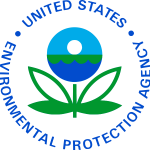 The U.S. Environmental Protection Agency (EPA) has awarded funds to all six New England states to help finance improvements to water projects that are essential to protecting public health and the environment. The funds will be primarily used to upgrade sewage plants and drinking water systems, as well as replacing aging infrastructure, throughout the state. Awards were made to the Clean Water State Revolving Fund (CWSRF) program in each state, which provides low-interest loans for water quality protection projects to make improvements to wastewater treatment systems, control pollution from stormwater runoff, and protect sensitive water bodies and estuaries; and to the Drinking Water State Revolving Fund (DWSRF) program in each state, which provides low-interest loans to finance improvements to drinking water systems, with a particular focus on providing funds to small and disadvantaged communities and to programs that encourage pollution prevention as a tool for ensuring safe drinking water.
The U.S. Environmental Protection Agency (EPA) has awarded funds to all six New England states to help finance improvements to water projects that are essential to protecting public health and the environment. The funds will be primarily used to upgrade sewage plants and drinking water systems, as well as replacing aging infrastructure, throughout the state. Awards were made to the Clean Water State Revolving Fund (CWSRF) program in each state, which provides low-interest loans for water quality protection projects to make improvements to wastewater treatment systems, control pollution from stormwater runoff, and protect sensitive water bodies and estuaries; and to the Drinking Water State Revolving Fund (DWSRF) program in each state, which provides low-interest loans to finance improvements to drinking water systems, with a particular focus on providing funds to small and disadvantaged communities and to programs that encourage pollution prevention as a tool for ensuring safe drinking water.
The awards are as follows:
- Connecticut: $26 million — $17.1 million CWSRF, $8.9 million DWSRF
- Maine: $19.6 million — $10.8 million CWSRF, $8.8 million DWSRF
- Massachusetts: $63.7 million — $47.4 million CWSRF, $16.3 million DWSRF
- New Hampshire: $22.7 million — $13.9 million CWSRF, $8.8 million DWSRF
- Rhode Island: $18.2 million — $9.4 million CWSRF, $8.8 million DWSRF
- Vermont: $15.6 million — $6.8 million CWSRF, $8.8 million DWSRF
Since the beginning of this program, EPA has awarded approximately $4.554 billion to New England states for the construction, expansion, and upgrading of clean water infrastructure resulting in decreased pollution entering waterbodies throughout the state.
As communities develop and climate patterns shift, water infrastructure needs are expected to grow. Green infrastructure is a cost-effective and resilient approach to water infrastructure needs that provides benefits to communities across the nation.
